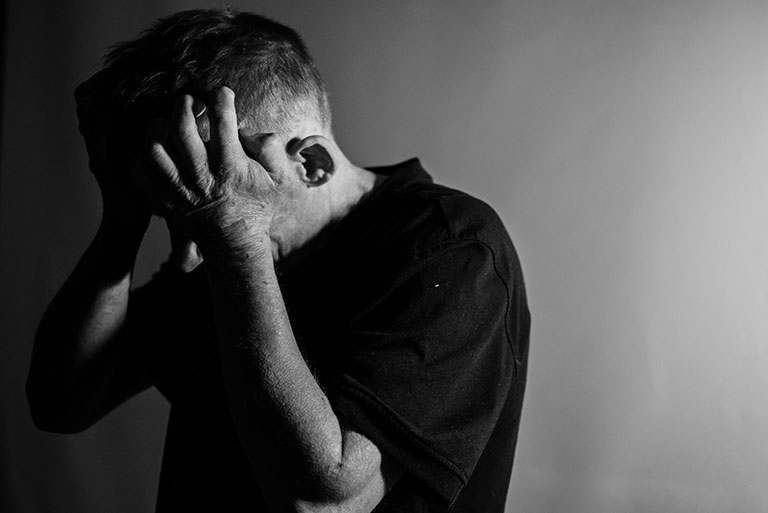Common Issues

RELATIONSHIP PROBLEMS
More than 90% of people in western cultures will marry by age fifty. Marriage is good for mental and physical health. It is also good for raising healthy children. Unfortunately, at the current rate of divorce, Statistics Canada predicts that 43% of marriages will end in divorce before their 50th year.
Whether a relationship continues in struggle or ends in divorce, the cost of marital difficulties can be enormous. Marital stress and break-up can destroy dreams, ruin finances, cause psychological disorders, destroy parent-child relationships, and leave children unable to reach their full potential.
It is important to pay attention to your relationship to ensure that it is healthy. It is best to work to prevent problems and act quickly when signs of problems arise. There are many common areas of marital difficulty to watch. Is your relationship having problems with trust, sex, money, children, communication, anger, drugs/alcohol, criticism, fear, physical abuse, infidelity, lack of passion, jealousy, division of labour? If you are experiencing distress, couples counselling can help.

ANXIETY
Anxiety is a state of uneasiness or feeling of tenseness. Overactive anxiety is one of the most common problems in our society. Almost one third of people in Western societies will experience an anxiety disorder in their lifetime. These fears can be debilitating, stressful for loved ones, and cause physical health problems in the short and long-term. Anxiety has been connected with many physical problems including gastrointestinal disorders, chronic respiratory disorders, and heart disease.
TYPES OF ANXIETY
Panic – It is common for anxiety to come in the form of short periods of panic that seem to come from no where. This panic can produce a number of different symptoms including sweating, chest pain, irregular heartbeats, and a feeling of choking, which may make the person feel like he or she is having a heart attack or “going crazy.”
General Worry – Sometimes anxiety can come in the form of overactive worry about many different aspects of life.
Social Anxiety – People can experience anxiety specifically about being in social situations. This can cause feelings of self-consciousness and avoidance of social situations.
Trauma – This is an anxiety that stems from a specific trauma or set of traumatic incidents such as a sexual assault, general assault, natural disaster, or car accident. Even though the incident is over, the stressful memories of the incident persist and cause stress.
Obsessing over Thoughts and Actions – Sometimes it is difficult to let go of certain thoughts. When these thoughts persist, a person may perform rituals to help reduce the stress. For example, fears of the door being unlocked may persist even after locking the door. The thought of the door being unlocked and the house being broken into may be so overwhelming that the person needs to check the lock repeatedly before the fear goes away. Obsessive thought can be about almost anything. This kind of anxiety can cause all kinds of rituals that interfere with life.
Fears of Specific Things – Often people fear specific things like snakes or spiders. Sometimes these fears can interfere with life, like the fear of elevators, flying, or small spaces. When these fears get in the way of life it is time to get help.
TREATMENT
The psychological treatments for anxiety are some of the most successful. It can be hard work to overcome fears, but with support it is possible. Treatments for anxiety generally involve finding ways to slowly confront fears in ways that are challenging, but not overwhelming.
DEPRESSION
Depression is more than passing sadness, it is a significant sad emotional state that includes a loss of interest in regular activities. Lots of other symptoms often go along with depression including sleeping problems, weight problems, fatigue, feelings of worthlessness, quickening or slowing of movements, trouble focusing, and thoughts of death and suicide.
Experiencing depression can be one of the worst things a person has ever gone through. These feelings can be so overwhelming that people sometimes commit suicide. If you think you are experiencing depression, it is important to share your feelings with someone and to seek help.
Sometimes depression can seem to come from no where and other times there might be a clear beginning and cause. For example, sometimes depression can start after an extreme stress (either positive or negative) like prolonged stress at a job, the birth of a child, or the ending of a marriage. Losing a loved one can also be the cause of depression. It is important to watch your own reaction when these things happen and seek help if you need support.

OTHER MOOD PROBLEMS
People experience other kinds of emotional fluctuations that can be devastating. Sometimes people’s mood can go up and down over time, either quickly or slowly. This problem can cause people to be very happy with lots of energy and then later experience devastating sadness. This up and down cycle can happen fast or slow and the difference between the up and the down can be large or small. These kinds of problems are types of what’s called “Bipolar Disorder”. These fluctuations can be extremely upsetting for the person experiencing them and also for family or other caregivers. Again, if this might be something you or someone you know is experiencing, it is extremely important to seek help.
People can also experience a less serious sadness over a long period of time. This can be a kind of colourless experience that can go on for months or years because it doesn’t interfere so much with your life that you think you need immediate help. Sometimes people think this kind of sadness is just the person’s personality, something that has always been there and can never be changed. This can leave the person and those around them feeling hopeless. Fortunately, there is hope. Even after years of feeling sad people can become optimistic, happy, and energetic.
TREATMENT
There are effective treatments available for depression and other types of mood difficulties. Cognitive Behaviour Therapy, for example, is a therapy that has been shown to be effective.
